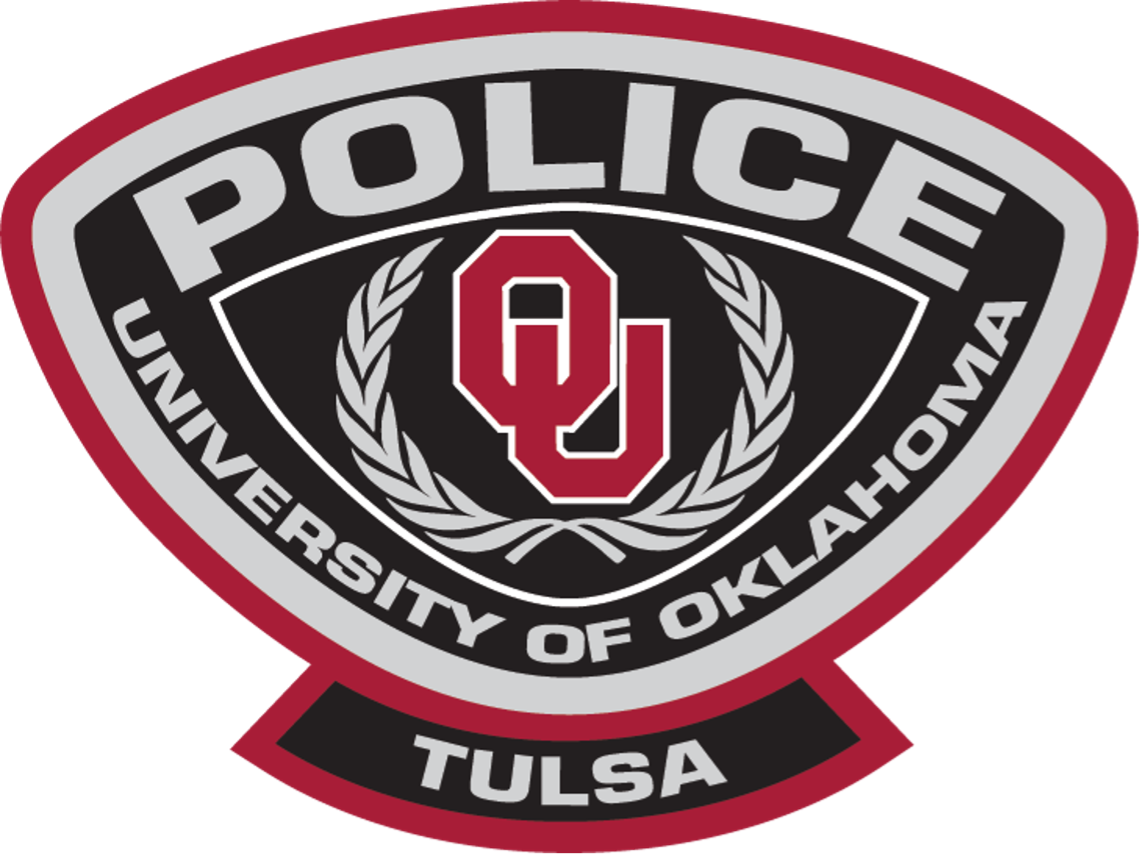Alcohol & Drugs
Possession, use, and sale of alcoholic beverages and illegal drugs are regulated by state law. The University has articulated a "Policy on Prevention of Alcohol Abuse and Drug Use on Campus and in the Workplace." The policy prohibits illegal use of drugs or alcohol in the workplace, on University Property, or as part of any University- sponsored activity. This and other policies are disseminated in the student and resident handbooks and in the faculty and staff handbooks and at the Human Resources Department in building 1. In accordance with state law, no one other than a commissioned law enforcement officer or armed security officer employed by the State of Oklahoma may carry firearms on campus.
Each person is responsible for his/her own behavior.
Building Access
Tulsa facilities are normally open during conventional business hours. With the exception of the library, which remains open in the evening and on weekends, security hours begin when buildings are locked at the end of the normal business day and end when building alarms are deactivated and doors unlocked on weekday mornings. Academic and administrative buildings are usually locked no later than 7:30 PM. The clinics are usually locked no later than 6:00 PM. Building alarms on the Sheridan and the Family Medicine Clinic are activated after the janitorial crews finish their work.
We recognize that there will be some need for after hour and weekend access to buildings. After hours and holiday access may be obtained by the use of a valid access card or by presenting your OU Student, Staff or Faculty ID card to the Security Officer at the Dispatch desk. Anyone working late or on weekends should notify the OU-Tulsa Police Department at 660-3900.
The University of Oklahoma-Tulsa does not have campus residences.
Housing
The University of Oklahoma - Tulsa campus does not have off-campus organizations or off campus housing facilities.
Police and Security / Maintenance
Police and Security officers perform monthly fire extinguisher checks to ensure all fire extinguishers are properly charged. Police and Security officers monitor the premises for lighting problems or any other physical hazards and promptly submit work orders as needed to the operations department for repairs or replacements. The campus buildings are equipped with card key access and door alarms that are monitored by dispatchers. The Campus is equipped with surveillance cameras located in strategic areas and monitored 24 hours and 7 days.
External Police Department Relations
The OU-Tulsa Police Department has a good working relationship with all neighboring police agencies. We work with and assist the Tulsa Police Department, Tulsa County Sheriff's Department and the Oklahoma Highway Patrol as requested or needed.
The University of Oklahoma Police Department (OUPD) on the Norman and Health Sciences Center Campuses, in consultation with their campus Vice President of Administration and Finance or his/her designee and the OU-Tulsa Police Department on the Schusterman Center campus in consultation with the OU-Tulsa president or his/her designee, are responsible for issuing Timely Warnings and Emergency Notifications to the campus community. The OU-Tulsa Police Department will continuously work and coordinate with local, state and federal law enforcement agencies.
Anyone with information warranting a Timely Warning, Emergency Notification or activating the University’s emergency communications system should report the circumstances to the OU-Tulsa Police Department immediately. The University will issue warnings or notifications as appropriate to keep the campus community informed about safety and security matters on an ongoing basis and to prevent similar crimes from occurring. The decision to issue a Timely Warning or Emergency Notification shall be decided on a case-by-case basis in compliance with the Clery Act and considering all available facts. The notification shall, in the first instance, be based upon whether the crime is considered a serious or continuing threat to students or employees and the possible risk of compromising law enforcement efforts.
Timely Warnings: Timely Warnings are usually issued for crimes to persons or property, including: arson, burglary aggravated assault, criminal homicide, motor vehicle theft, and robbery and sex offenses. Timely warnings also may be issued for other crimes as deemed necessary. Upon receipt of all relevant information, such warningwarnings will, as circumstances warrant, will be issued in a manner to best protect the campus community.
Emergency Notifications: The University of Oklahoma will immediately issue an Emergency Notification to the campus community upon the confirmation of a significant emergency or dangerous situation involving an immediate threat to the health or safety of students or staff on campus. Warnings may only be withheld if they would compromise efforts to contain the emergency. Confirmation of an emergency means that the OU-Tulsa Police Department and other University officials, as appropriate, will gather and analyze reported facts to verify that a legitimate emergency or dangerous situation exists.
Procedure: When a determination has been made that a Timely Warning or Emergency Notification is appropriate, OU-Tulsa Police Department, Public Affairs and the President’s Office will take all appropriate steps to ensure timely notification of the campus community including, immediately contacting the Assistant Vice President for Public Affairs or hi/her designee to allow for appropriate media distribution. Options for notifying students, faculty and staff include the University’s Emergency Communication System. Additional methods of distribution may include, as appropriate:
1. Contacting the local media for immediate distribution;
2. Issuing a campus wide e-mail of the Timely Warning of Emergency Notification; and
3. Posting the warning on OU-Tulsa’s website.
Such warning(s) and notifications may include, but are not limited to the following information: type of crime, date, time and location of crime as well as available suspect information.


